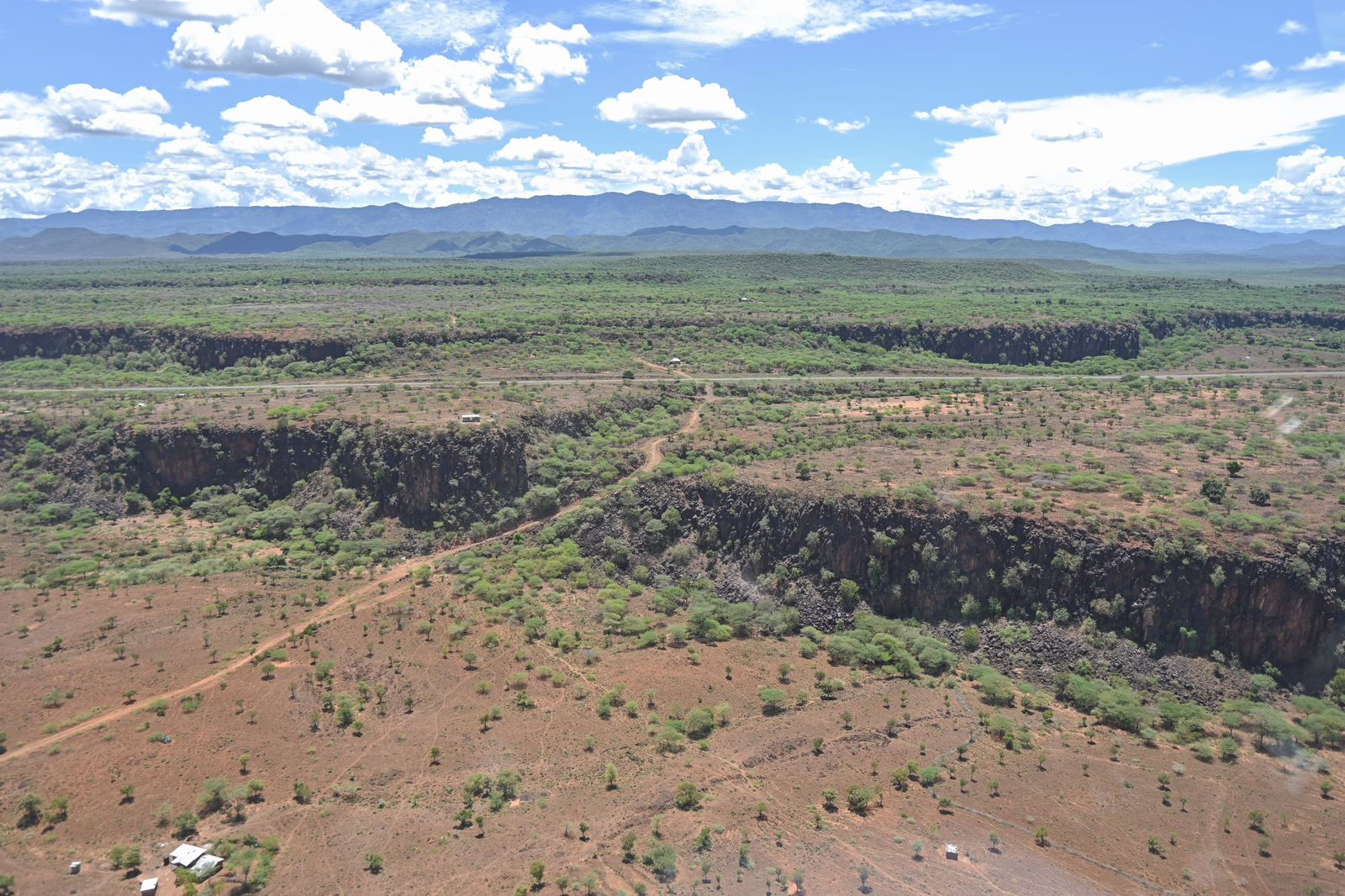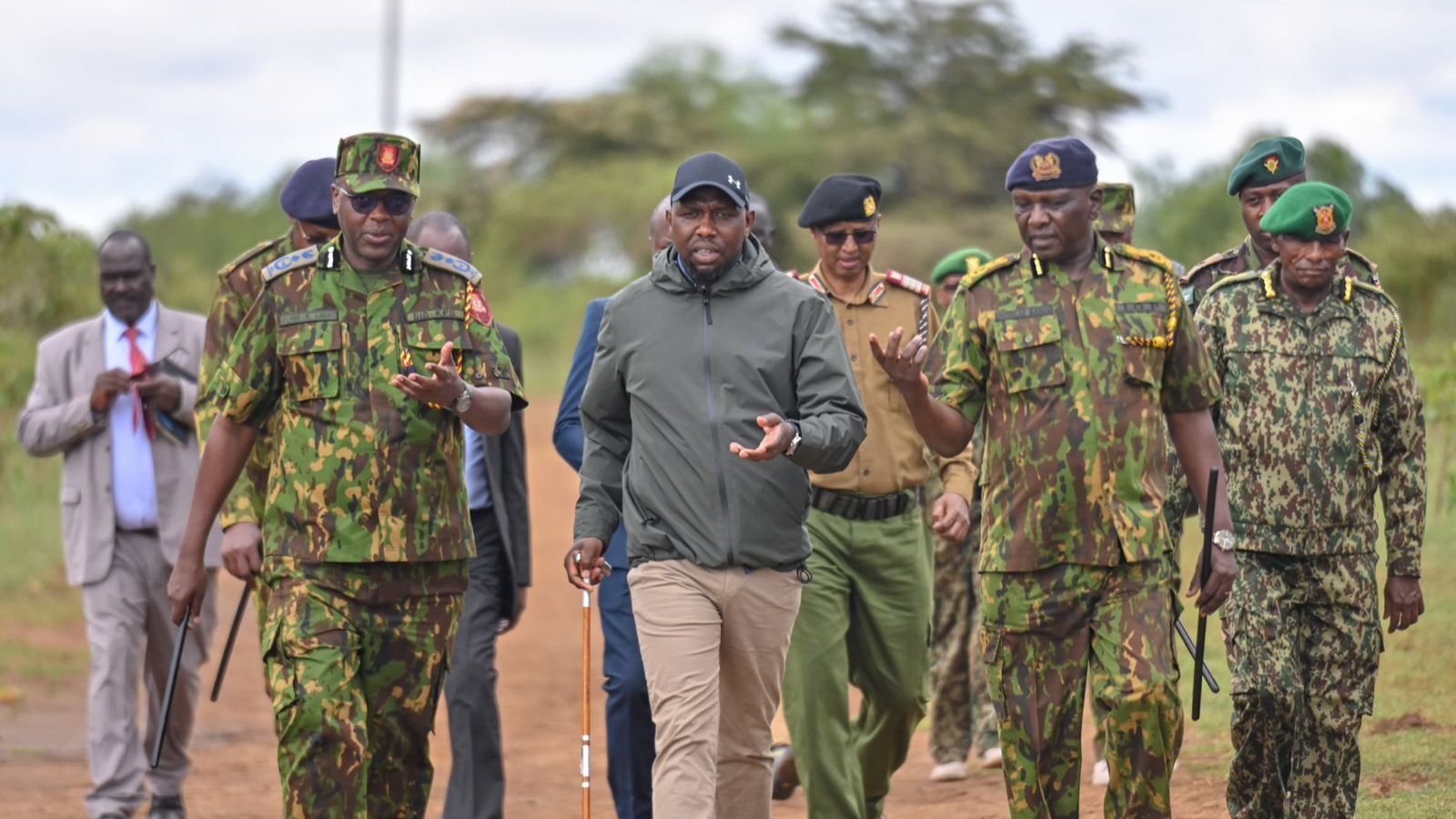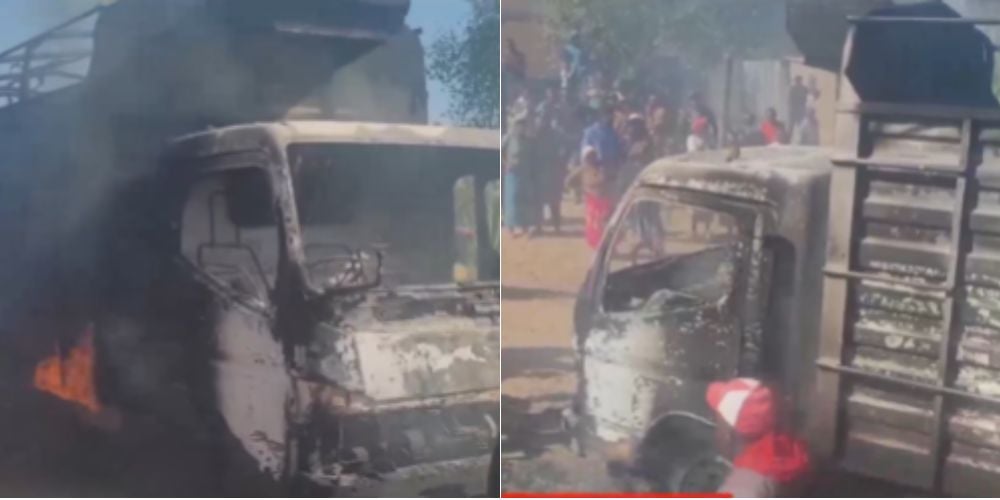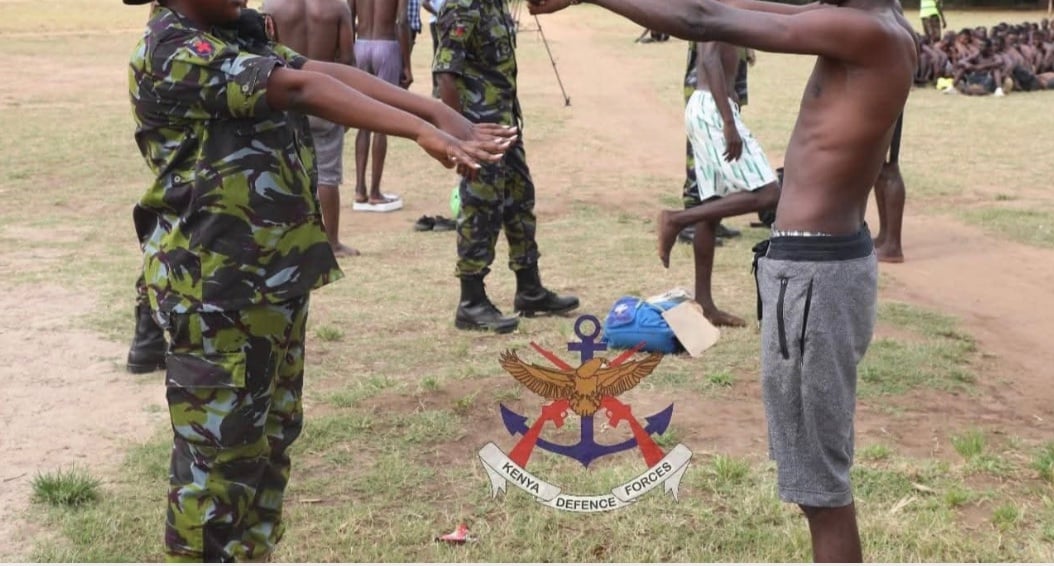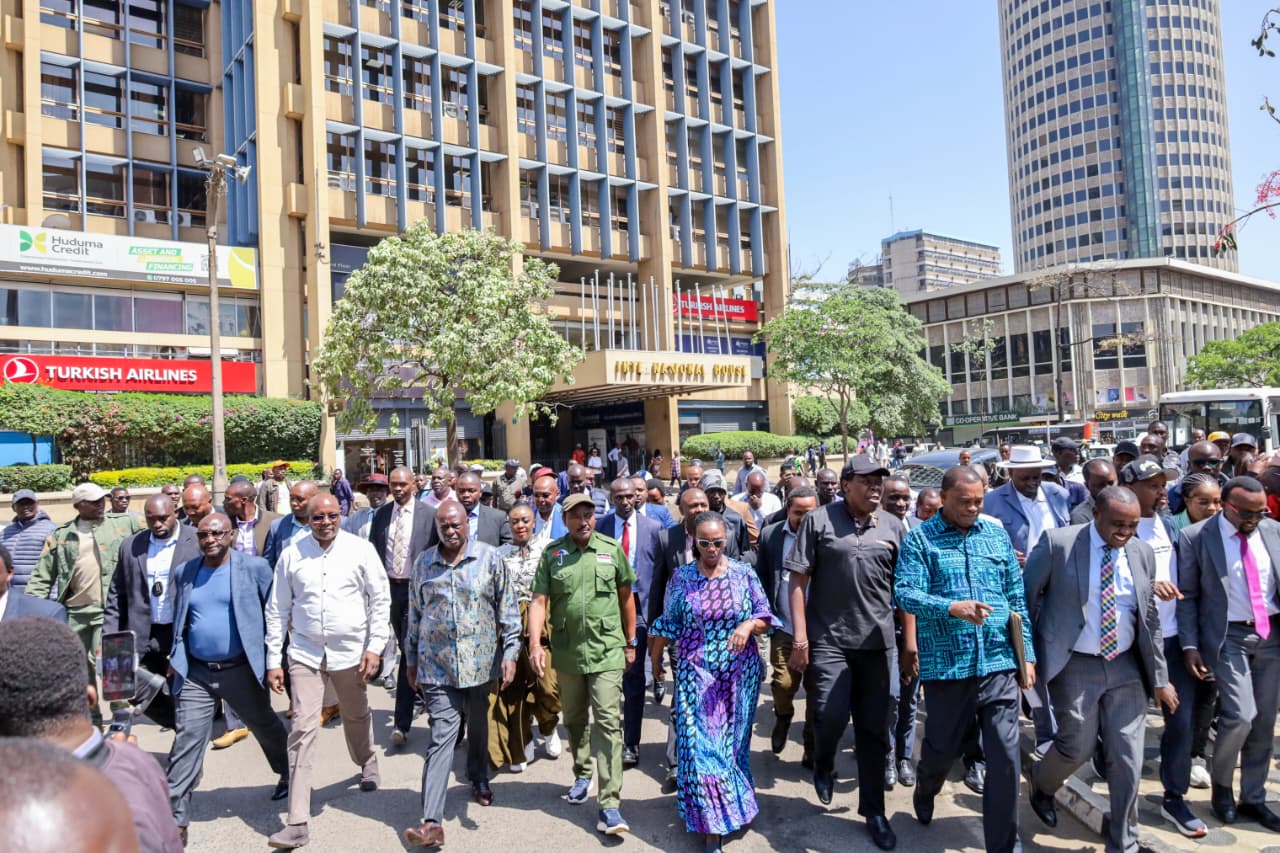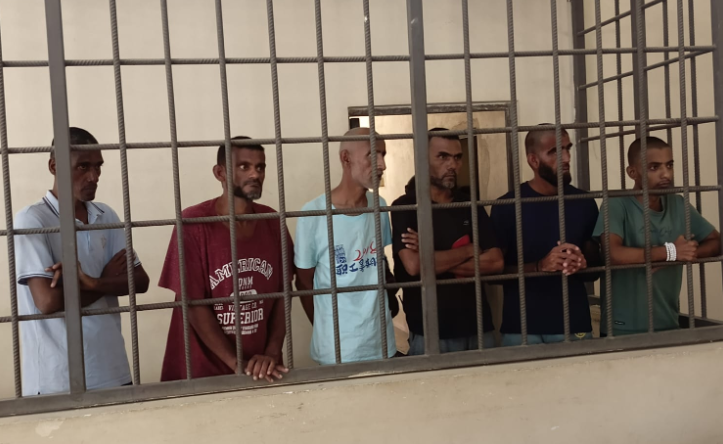The government’s intensified crackdown on banditry in the North Rift is paying off, with security agencies reporting that displaced families are returning to their homes and communities once torn apart by conflict are now rebuilding.
The multi-agency security initiative, Operation Maliza Uhalifu, was launched to tackle a wave of attacks in which armed bandits terrorised at least seven counties, raiding livestock, displacing households, and leaving behind a trail of violence.
Years down the line, authorities say the campaign has restored calm in areas that had long been under siege.
During an engagement forum on Monday, September 15, Interior Principal Secretary Raymond Omollo said the strategy of combining community involvement with law enforcement had weakened bandit networks, especially by keeping young boys in school.
"Most of these bandits are pretty young boys who have stopped going to school, but when schools are open and we are able to take them back, it means that we are able to take away the allure for young boys to go out there. Additionally, punishing and making it painful for these people helps in making them come out," he said.
Read More
Interior Cabinet Secretary Kipchumba Murkomen added that the persistence of security forces had convinced hardcore criminals to surrender their weapons.
"In North Rift, hardcore criminals are returning their guns because of the persistent operation that was done by the police. When citizens see that police are determined to apprehend criminals, the level of support goes higher. Schools have been open and economic activities have opened," he remarked.
Locals who had once fled bandit attacks now speak of peace and cooperation, and are rebuilding after returning to their homes.
"We have found peace because even our neighbors, with whom we used to fight, we are now cooperating with in everything. Since we returned without cows and goats, they themselves have been bringing us milk,” said Zipporah Lesultan, a resident of Mukutani.
Joseph Lotodo from Tiaty echoed the sentiment, praising the manner in which the expansive operation was conducted.
"The operation was done in a very good way that there were no human rights abuses, and it was directed at those people who commit those atrocities," he said.
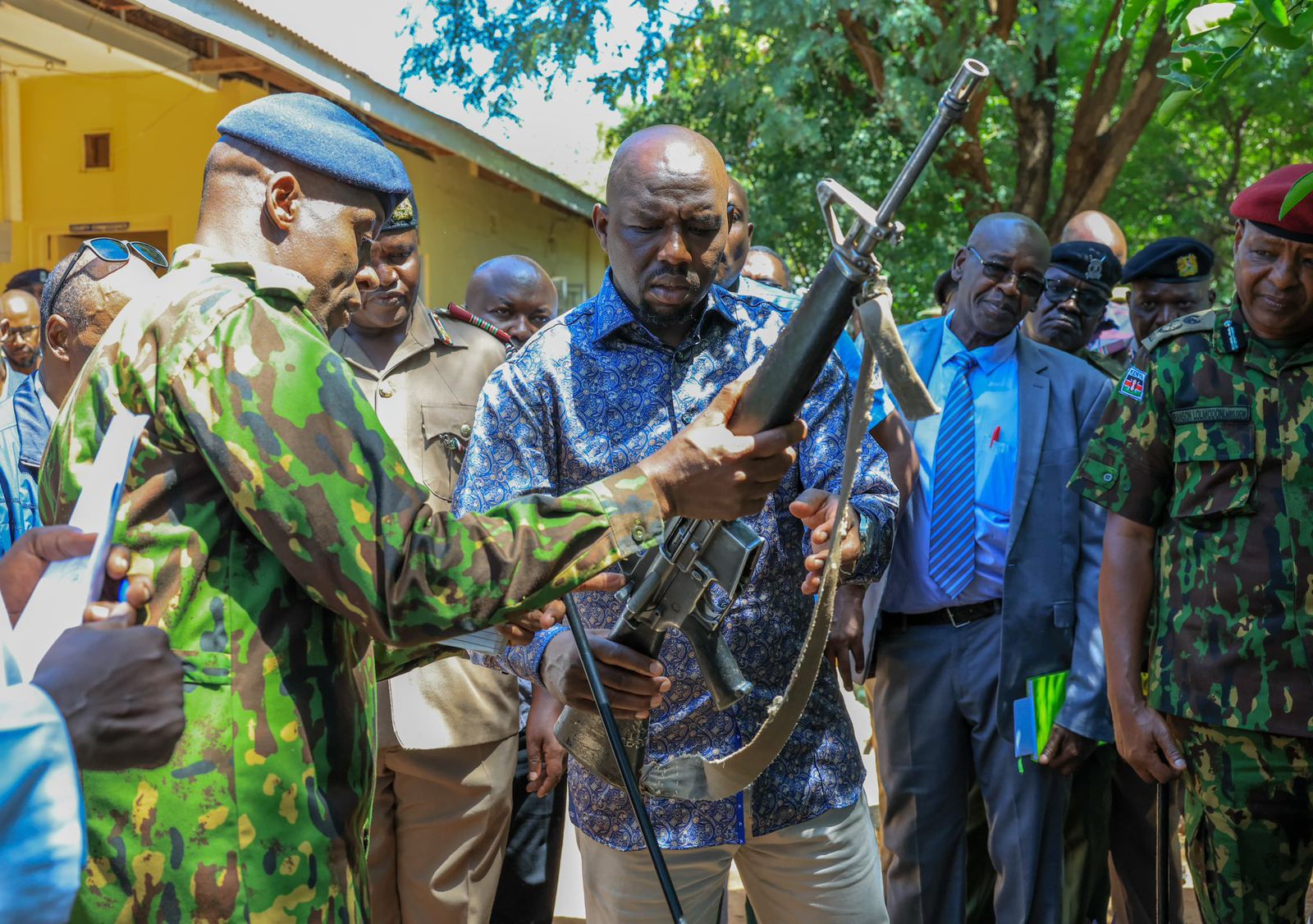
Former bandits have also confirmed abandoning the practice and surrendered their guns to the authorities.
"If my [gun] came from Uganda, you can’t really know how it got here, as long as you’ve given money to someone who knows. If you want a gun, you just look for someone who has access to this network," a former bandit, Asa Ruto, explained how the illicit gun trade once operated.
Bramson Tarus, another reformed bandit, said, "I once stole cattle, but they recovered them twice; so I gave it up and have never gone back to it. The plan was to return, but it has reached a point where there’s no way of going back there anymore."
Murkomen revealed that the government has already recorded progress in voluntary disarmament and is looking to keep pushing.
"We have almost 30 guns that have been surrendered voluntarily in Elgeyo Marakwet, West Pokot, and Baringo Counties. This will be sustained for as long as it takes,” he stated.
On Jamhuri Day, December 12, 2024, Omollo discussed the issue of banditry in the larger North Rift region, noting that the government has been able to restore peace with the help of the local community.
"At the beginning of last year, and as we are progressing in the year, we were having unprecedented cases of banditry, cattle wrestling, particularly in the North Rift. We ended up with a situation where schools were closed, people were displaced, and we lost lives beyond the herds of cattle, goats, and sheep.
"Progressively working with players, including the communities, we have been able to pacify the North Rift. We have essentially been able to silence the guns. We have a few isolated cases, but they are far and in between," he stated.
Omollo attributed the success to the involvement of key security players, including the National Police Service (NPS), the Kenya Defence Forces (KDF), and the National Police Reservists (NPR), Chiefs, and village elders.
"Our success has largely been attributed to our ability to bring together all the different actors, particularly the security players. All these have really played out to help stem the situation that was getting out of hand," he added.
Omollo added that intensified security operations have been conducted in the affected areas, and most schools that had been closed due to insecurity have been reopened.
"Today we have half of the schools that were initially closed reopening, with the half that we haven't been able to reopen being primarily in parts of West Pokot and Turkana. We have also been able to rebuild the infrastructure in 21 out of the 26 schools that were worst affected by banditry," he stated.

Most recently, two of the most wanted bandits surrendered on Wednesday, September 11, in Marakwet West, handing over two AK-47 rifles, 21 rounds of ammunition, and police uniforms at Kabetwa.
Elgeyo Marakwet County Police Commander Benson Mulinge confirmed that the suspects are now in custody.
"They were the two most wanted criminals linked to banditry, and they came in themselves and handed over the guns," he said.
According to Mulinge, the two had been on the radar of a special police unit for more than two months before choosing to surrender.
He further noted that 10 wanted bandits had turned themselves in over the past few weeks, surrendering their weapons to security teams.
“We are warning all those who are still out there to surrender before we get them,” he added.
